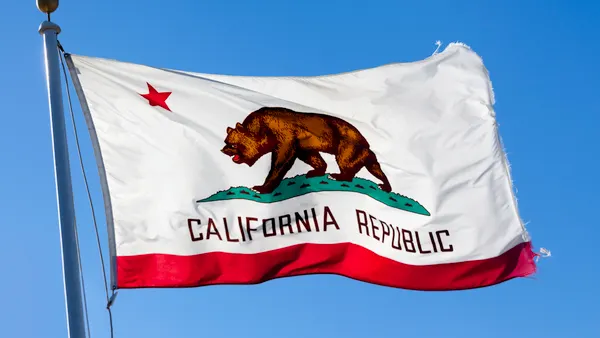Dive Brief:
- Sen. John Barrasso, R-Wyo., on Wednesday said he anticipates Senate action on his latest carbon capture bill, S.B. 2602, dubbed the USE IT Act. He told reporters at a carbon capture Hill event that he is continuing to work on legislation to incentivize adoption of carbon capture that garners wide bipartisan support.
- While he does not support a carbon tax, Barrasso emphasized interest in research that would find a value in the utilization of carbon, similar to enhanced oil recovery processes where carbon dioxide is used to create pressure in extracting fossil fuels.
- To make carbon capture work for utilities, "we've never gone down the path of a carbon tax," Lee Anderson, governmental affairs director of Utility Workers Union of America, told Utility Dive. However, the technology's high price tag has deterred widespread adoption among power generators without other policy drivers to curb emissions.
Dive Insight:
The new bill seeks to enhance carbon capture incentives, supporting research and collaboration in the development of CO2 pipelines and carbon capture facilities.
Barrasso, Sens. Sheldon Whitehouse, D-R.I., Shelley Moore Capito, R-W.Va., and Heidi Heitkamp, D-N.D., helped move a carbon capture tax incentive bill (45Q) through Congress as part of last year's spending bill with support across various industry sectors. The group's USE IT Act, which came out of committee May 22 by voice vote, did not face opposition, making it "easier to get as part of a larger [legislative] package again," Barrasso said.
"The hardest issue in the Senate is time on the floor for a fully debated process," Barrasso said.
Currently, the USE IT Act has not been introduced on the House side.
Barrasso, like other Republican legislators, has opposed a carbon tax, saying he would instead focus on research that "defines solutions that actually puts value on the carbon instead of cost on the carbon." Getting paid to utilize the carbon further is attractive, especially in commercial plants where some processes are very carbon dioxide-heavy.
Earlier this month, a new group — backed by Exelon, First Solar and the American Wind Energy Association — formed to advocate for a federal carbon tax that would create monthly dividend returns to all Americans. Politically, putting a tax on carbon has been a tough sell, failing twice in Washington state.
Without a tax on carbon emissions, other policy expected to drive more carbon capture and use include the senator's current bill as well as actions to address siting and permitting for carbon capture facilities, to help establish the infrastructure, according to UWUA's Anderson.
"Those are all little bits and bobs that will fit together, we think, to form a policy mosaic to make it easier and incentivize people to do that," said Anderson, speaking of power generators using carbon capture.
Coal and natural gas power plant operators have balked at the high price of retrofitting carbon capture technology and the energy costs of removing the CO2, saying they lack policy drivers to lower their emissions in the first place. That is the case for many utilities even after Congress passed the 45Q carbon capture tax incentive.
However, Wyoming is one state where, Anderson said, the 45Q incentive may be enough to spur utilities to use the emissions-reducing technology, as carbon capture, sequestration and utilization infrastructure is already being built out there by other sectors.
Wyoming, as Barrasso put it, is the coal capital of the world.
And when it comes to carbon capture, the favorable political environment for fossil fuels helps make the technology very attractive in the state, making it relatively "low-hanging fruit" for adoption at power plants with high carbon dioxide emissions, according to Anderson. Wyoming also has geologic formations that enable carbon storage and an economic need for projects that preserve power plants acting as "anchor institutions" in local communities, he said.
"[I] cannot underestimate the importance of these facilities in the industry to these local economies and these communities and families," Anderson said of Wyoming coal plants.














